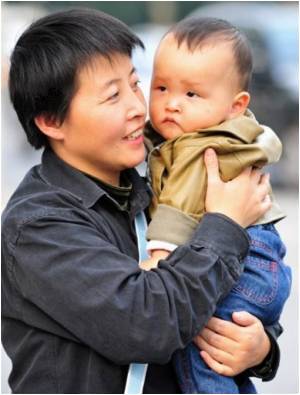Women who show increased brain activity or neural response to infant’s facial signals during pregnancy and following delivery were found to bond better with their babies in a recent study.
- Early bonding between mother and baby is crucial for a child’s healthy development and a strong bond facilitates better overall development in the long-term
- Stronger bonding is facilitated when the mother shows heightened sensitivity to baby’s facial signals and emotions such as crying and smiling
- Women who display increased brain activity in response to baby’s facial signals during pregnancy and following delivery showed greater sensitivity to the baby’s needs resulting in better bonding between mother and baby
Read More..
- The study included 39 women aged between 22 and 39 years of different racial origins, most of them married and having a college degree
- The participants were reviewed twice, once in the last trimester of pregnancy and the second visit three to five months after delivery
- During both visits, brain activity was measured using an EEG (electroencephalogram) to test the level of brain activity in response to looking at 40 images showing happy and sad expressions of infants and adults
- During both visits, the women reported about feeling depressed or anxious and on the second visit the women reported how well they were bonding with their baby
- Women with greater increase in brain activity between the first measurement (during pregnancy) and the second measurement following delivery reported a better bonding with their babies
- Changes in the brain that were observed reflected an automatic process and were not intentionally or deliberately controlled by the participants
- The changes in brain activity were not found to be related to structural differences in the baby’s face but rather emotional needs and signals of the baby
Limitations of Study
- Size of the study was small (39 women)
- Details of bonding was reported by the women and not observed directly by the study team
- Direction of the association was not determined i.e. whether brain change caused mother-child relationship or mother-baby bonding caused the brain change
The research team plans to further study how emotional networks in the brain communicate and whether these networks influence parent’s understanding of their baby’s emotional needs or vice versa.
In conclusion, the findings of the study explore the mechanisms that might possibly influence the bonding of the mother and her baby which is very important for the healthy development of the child. To conclude with the remarks of David Haley, professor of psychology at the University of Toronto, and lead author of the study, "Our findings support the idea that, in the brain, responses to infants' cues change over the course of pregnancy and early motherhood, with some mothers showing more marked changes than others. This variation, in turn, is associated with mothers' reports of their emotional bonds with their babies."
Reference:
- Changes in Cortical Sensitivity to Infant Facial Cues From Pregnancy to Motherhood Predict Mother–Infant Bonding - (https://doi.org/10.1111/cdev.13182)
















